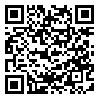BibTeX | RIS | EndNote | Medlars | ProCite | Reference Manager | RefWorks
Send citation to:
URL: http://salmandj.uswr.ac.ir/article-1-467-en.html
Objectives: The aim of the study was to determine the effect of book therapy on elderly self-management capabilities.
Methods & Materials: This study was a semi-clinical trial? The study population consisted of all the older adults 65 years of age and over who were members of the senior social club of the fourth district of Tehran. Sixty people were chosen based on inclusion and exclusion criteria and were randomly divided into two groups of 30, study and control. The intervention consisted of five sessions of book therapy over 10 weeks, which was executed for the study group. Self- management capabilities were measured before and after intervention in each group. An SMSA-30 questionnaire was used to collect data (α=0.8), which were analyzed using SPSS 18 and the Chi-square test, the Climograph-Smirnoff test, Fisher's exact test, and the paired and independent T-tests.
Results: The mean scores for self-management capabilities before the intervention were 70.77 and 68.46 for the study and control groups respectively, while mean scores after intervention were 73.25 and 69.53 for the study and control groups respectively. Results were statistically meaningful at the 95th percentile. Findings revealed that after intervention the overall score of the study and control groups showed significant difference (P=0.03). Furthermore, the study group scores in behavioral investing, behavioral variability, and optimism were significantly higher than that of the control (P<0.05), which is indicative of the positive effects of intervention.
Conclusion: The findings, in addition to the confirmation of our hypothesis, reveal that book therapy improves self-management variables, meaning that such an intervention can lead to significant improvement in self-management of the elderly and their quality of life. Therefore, noninvasive interventions such as book therapy and other kinds of cognitive-behavioral therapy conducted by nurses, in addition to improving self-management capabilities in the elderly, may provide a basis for the promotion of quality in life and active participation of this age group in the society. Needless to say, this study introduces new opportunities in nursing services and research.
Received: 2011/08/20 | Accepted: 2011/12/10 | Published: 2012/01/01
| Rights and permissions | |
 |
This work is licensed under a Creative Commons Attribution-NonCommercial 4.0 International License. |





